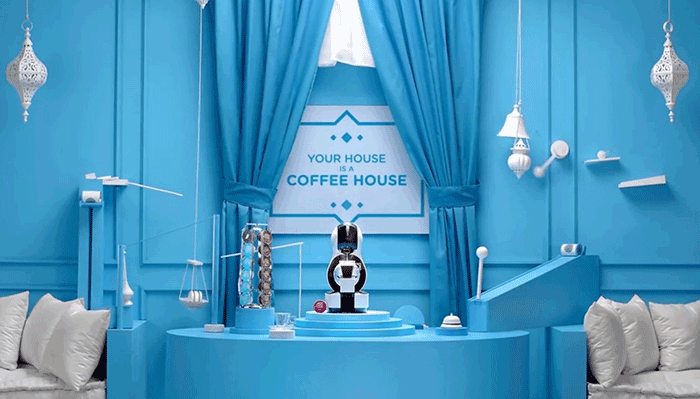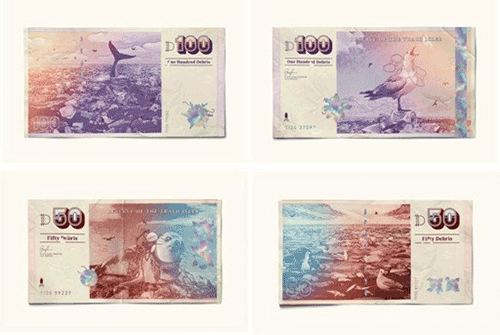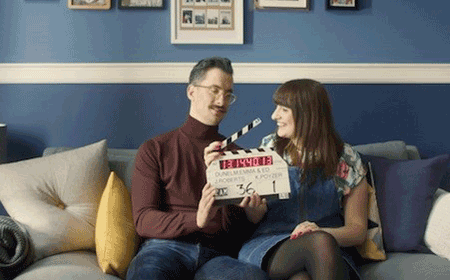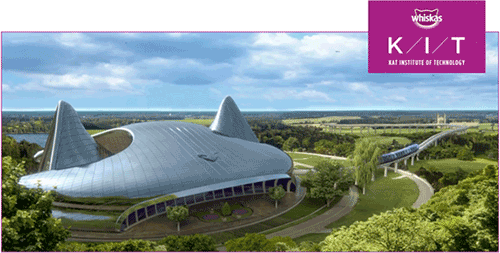Content, when done well, can spark joy, writes WARC’s Lucy Aitken, who’s been moderating judging sessions for this year’s WARC Awards’ Effective Content Strategy category.
Some brands really struggle to ‘do’ content well, so they end up cluttering up our lives with it. Their content does not, to borrow the words of Marie Kondo, spark joy. It is not treasured by anyone. If anything, it does their brand huge harm because it irritates people. Forgetting that their content is competing with the entire internet, the final season of Game of Thrones, kids, partners, friends, pets and hobbies, these brands blithely spew out huge amounts of content every year, expecting people to lap it all up. This is tantamount to spreading out an elaborate buffet in a room full of dieters. That’s what makes the shortlisted case studies in the Effective Content Strategy for the 2019 WARC Awards such an interesting collection. Between them, they’ve sparked huge amounts of joy for our ever-scrupulous global jury.
Broadening the definition of content
One campaign that generated some heated debate among judges is for Nescafé’s Dolce Gusto coffee. Via Wunderman Dubai, the objective was to increase the brand’s penetration in the MENA region. The crucial – and somewhat unorthodox - content component is the coffee corner, an area of the living space in Middle Eastern homes devoted to socialising while drinking coffee.

Fleur Willemijn van Beinum, Global Content Director at rival coffee company Jacobs Douwe Egberts, was really impressed with the brand for going the extra mile. “They looked beyond the data, going into people’s houses and speaking to people. This additional step that makes it stand out. They really stepped into local culture.”
This broad interpretation of content was reminiscent of an Australian campaign that won a Gold in the 2017 WARC Awards. In this effort for charity MS Limited via whiteGREY, a bike was created to mimic the symptoms of multiple sclerosis. Needless to say, the bike was impossible to ride, even by the country’s most skilled cyclists. One judge, Janisa Parag, Head of Planning at True, made the point that: “A creative product became the content. It was pitching the boundaries of what content is in people’s lives.”
Other campaigns which managed to achieve this in the 2019 shortlist included an educational initiative from Japan via I&SBBDO Group and KOO-KI, which taught people how to write the word ‘oyster’ in kanji, the mature way of writing Japanese. Meanwhile, AMVBBDO’s The Trash Isles initiative for Plastic Oceans International created an entire country to raise awareness about pollution. With its own flag, anthem, currency and stamps – all made from recycled materials – the country encouraged 220,000 individuals to become citizens, including Sir David Attenborough.

“This was creativity at its best,” said chair of the jury, Namita Mediratta, Unilever’s Global CMI Director, Content Centre of Excellence, who was impressed by its unconventional approach. “They could have shown animals dying but they kept it light.”
Creating, not reflecting culture
One theme to emerge from the shortlist is the ability of a strong content strategy to position itself as a piece of culture in its own right. In Tunisia, for instance, Orange’s Hashtagging Grandpa, through FP7 McCann Tunis, was picked up by people and given a life of its own. In the words of one judge, Eleanor Thornton-Firkin, Head of Content and Creative Development, Ipsos Connect: “Once you start being part of a conversation and other brands want to join in, you’ve got some currency.”
No need to reinvent the wheel
Of course, if an existing conversation is right for your brand, why reinvent the wheel? AMVBBDO’s initial campaign for Mars Petcare-owned Whiskas, Kitten Kollege, which took a Bronze in the 2018 WARC Awards, submitted its sequel: a feline take on The Massachusetts Institute of Technology (M.I.T.), entitled the Kat Institute of Technology, or K.I.T.
This online content series spoofed Silicon Valley tech companies and continued to leverage our ongoing feline infatuation. While some judges felt that sticking cats in your content is a surefire route to success, it’s worth pointing out that, for Whiskas, that’s an entirely appropriate move. What’s more, it’s gratifying to see a continuation of a content strategy as opposed to one being abandoned by the roadside while a new marketing team try to rally around a new one.
The (re)birth of AFP?
Finally, a few words about advertiser-funded programming (AFP). This idea has been around for decades now but has, somewhat surprisingly, not had the take-up that was being predicted in 2009. Ten years ago, WARC ran a news article suggesting that AFP could be a real revenue-generator for broadcasters who were suffering from declining ad revenues. This has not really happened, so it’s encouraging to see a case study from the UK for home furnishing brand Dunelm that invested in AFP as a way of differentiating its brand from John Lewis and IKEA. The concept? If people share similar taste in décor and furnishings, perhaps love might blossom between them.

Through MullenLowe London and Goodstuff, Back to Mine was ITV’s first AFP in seven years and reached 15 million UK adults. It also spun out Back to Mine: Stay for Longer, a short-form online content series for the show’s superfans.
Incidentally, the Grand Prix winner in the Effective Partnerships and Sponsorships category in the 2018 WARC Media Awards also used AFP: Suzuki couldn’t find the right media property to partner for its Ignis launch, so it created its own with its media agency, the7stars. This year, the third season of All Star Driving School will appear on E4, suggesting that, when done considerately, there’s still huge potential for this largely unexplored format.
So next time you’re rethinking your content strategy, check out some of these examples for inspiration. And while you’re there, ask yourself: “Will it spark joy?”
The winners of the Effective Content Strategy category will be announced on 12 June. WARC subscribers can now read all of the shortlisted WARC Awards case studies across all four categories. If you’re interested in judging the 2020 WARC Awards, please contact lucy.aitken@warc.com.


